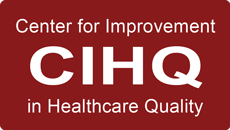
Who is responsible for the Infection Prevention & Control (IPC) program at your hospital? If your answer is –we’re part of a health system that provides us with a system-wide IPC program, please continue reading this article. We’re going to take it from the top (aka the governing body) as we navigate the CMS regulations for a hospital and system-wide Infection Prevention and Control program with the inclusion of a few survey tips.
Program Responsibility
CMS makes it clear – The responsibility starts at the top with the governing body or hospital board. The hospital board must appoint one or more individuals to be responsible and lead the IPC program. Survey Tip – Document the board appointment in meeting minutes. Be sure to include an excerpt of the minutes with the date in your survey readiness binder. If you don’t have a document binder prepared for surveyors, start one today.
CMS makes it clear – The responsibility starts at the top with the governing body or hospital board. The hospital board must appoint one or more individuals to be responsible and lead the IPC program. Survey Tip – Document the board appointment in meeting minutes. Be sure to include an excerpt of the minutes with the date in your survey readiness binder. If you don’t have a document binder prepared for surveyors, start one today.
Program Leadership
Although infection prevention and control are weaved into every department and aspect of patient care, CMS holds the medical staff and the Director of Nursing responsible. They are required to provide the board with a recommendation for the one or more individuals they believe should lead the IPC program. Survey Tip – Be sure to include the recommendation when documenting said board minutes.
Although infection prevention and control are weaved into every department and aspect of patient care, CMS holds the medical staff and the Director of Nursing responsible. They are required to provide the board with a recommendation for the one or more individuals they believe should lead the IPC program. Survey Tip – Be sure to include the recommendation when documenting said board minutes.
There are many qualities and characteristics to consider when recommending leadership for the IPC program. After all, this is one tough job! CMS states the board should assure the leader(s) is qualified through education, training, experience, or certification in infection prevention and control. CMS does not specify the number of infection preventionist(s) (IP) or the hours that must be devoted to the IPC program, but instead leaves the determination to the board with instructions stating adequate resources must be provided to ensure all program functions are covered with consideration given to patient census, population, and complexity of the healthcare services.
Program Scope
When determining which departments and services to include in the ICP program, the hospital’s CMS certification number establishes the boundaries. All services and departments licensed under the hospital’s CMS certification number must be included in the IPC program. This includes all campuses, provider-based locations, satellites, remote locations, etc.
When determining which departments and services to include in the ICP program, the hospital’s CMS certification number establishes the boundaries. All services and departments licensed under the hospital’s CMS certification number must be included in the IPC program. This includes all campuses, provider-based locations, satellites, remote locations, etc.
System or Hospital Program
It is permissible for health systems to have a system IPC program for multiple, separately CMS-certified hospitals, but there are some important caveats:
It is permissible for health systems to have a system IPC program for multiple, separately CMS-certified hospitals, but there are some important caveats:
- There must be an individual or group of individuals with IPC expertise dedicated to each hospital with responsibilities of communicating with the system program, implementing, and maintaining policies, and providing education and training to hospital staff. Survey Tip – Consider including these components in your Infection Preventionist’s job description.
- Each hospital must demonstrate issues specific to their hospital, are considered and addressed by the system.
- Each separately CMS-certified hospital must be held accountable to the system’s governing body for meeting CMS Conditions of Participation. This includes having the IPC program reporting into the QAPI program. Survey Tip – Be prepared to discuss and provide meeting minutes demonstrating the IPC Committee reports to the QAPI Committee and information flows upstream to the board. Consider including a visual aid, such as a committee reporting flow chart.
- The system program must consider the significant differences in patient populations and services offered at each hospital which can result in unique circumstances. Survey Tip – System-wide IPC program risk assessments and plans must address hospital-specific goals, i.e., CLABSI prevention may be an excellent goal for most of the system’s hospitals, but every hospital may not need this as their top goal.
- Policies and procedures must be developed and implemented for each CMS-certified hospital to address the needs and concerns of each hospital separately. Survey Tip: If a system-policy is used, be sure to list the name of each CMS-certified hospital.
References
- Center for Improvement in Healthcare Quality. (2022). Accreditation Standards for Hospitals.
- Centers for Medicare and Medicaid Services. Conditions of Participation 42 CFR §482.42 Infection Prevention and Control and Antibiotic Stewardship Program Interpretive Guidance. Updated July 6, 2022.
